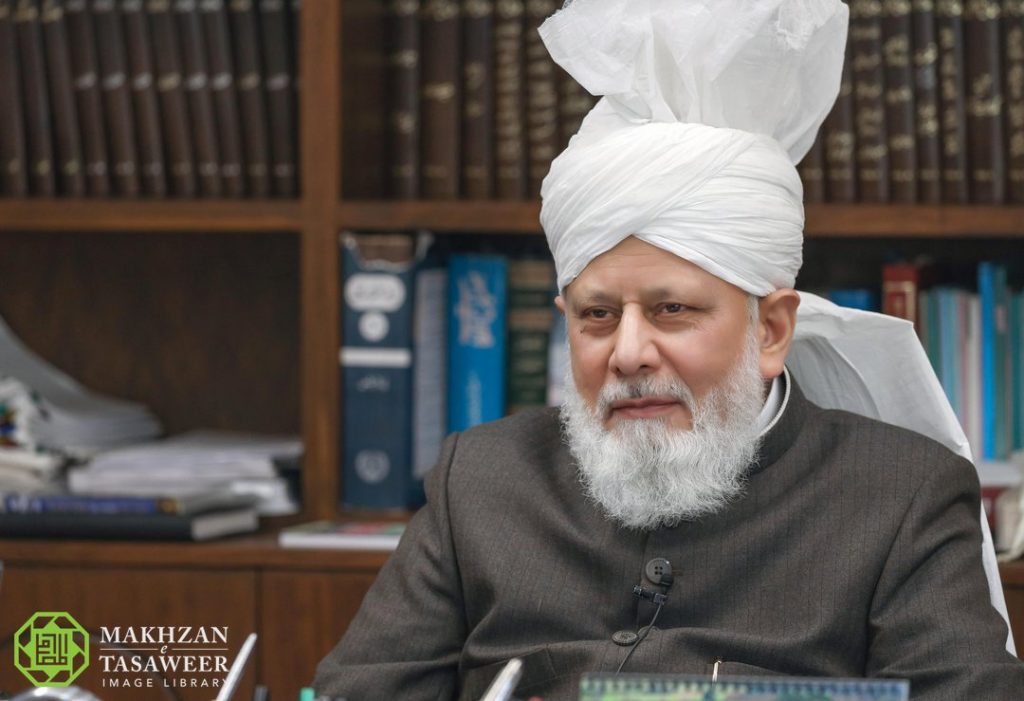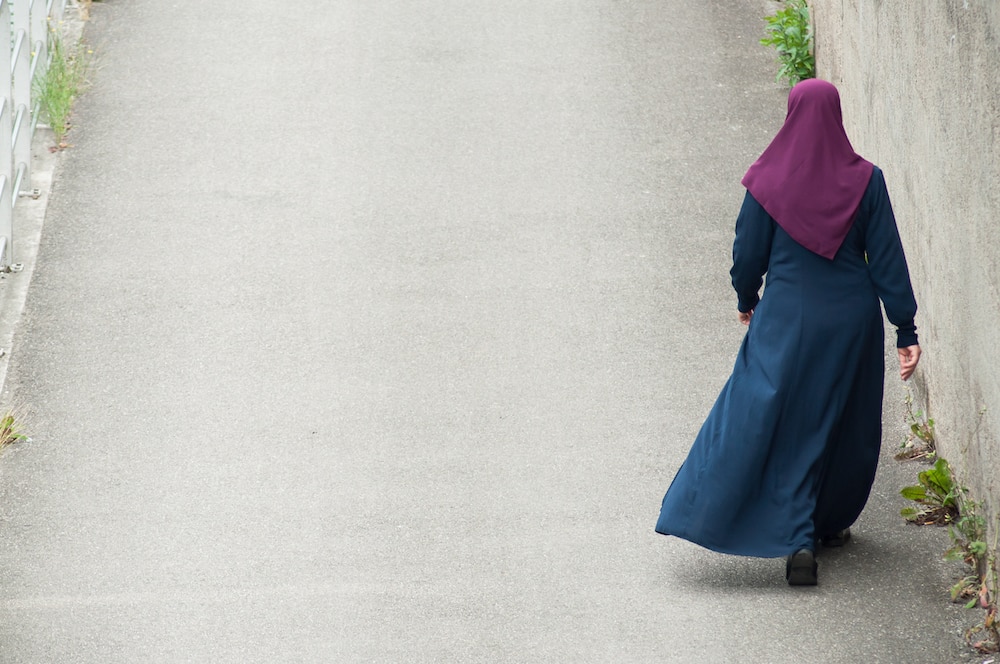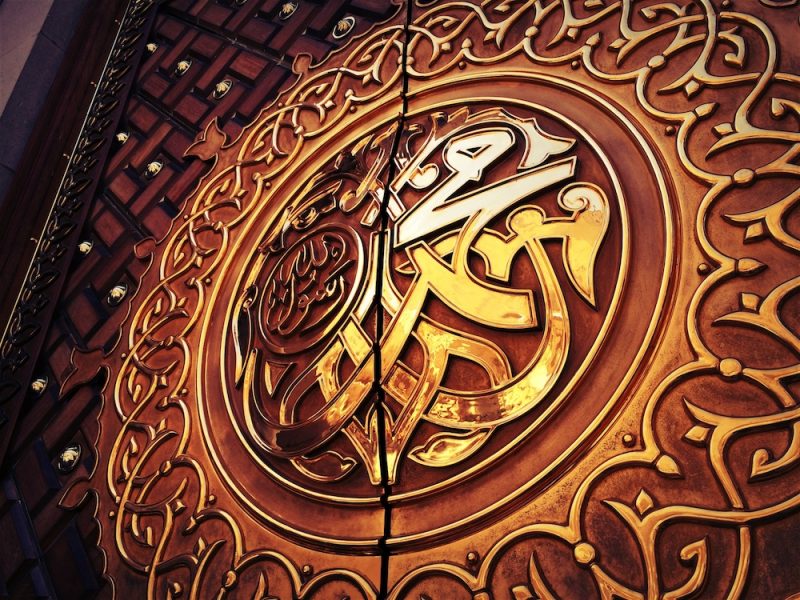
His Holiness, Hazrat Mirza Masroor Ahmad (aba) is a beaming beacon of Divine guidance and support. His Holiness (aba) represents the highest level of a connection with God in today’s world and thus he is the spiritual leader for tens of millions across the world, and champions the message of fulfilling the rights owed to God, and fulfilling the duties we each owe to our fellow human beings. Over the course of his Friday Sermons, addresses on various occasions, meetings with different organisations and children’s classes, His Holiness (aba) imparts invaluable knowledge and insight on a remarkably vast array of topics.
The Review of Religions is honoured to present some of these ‘Rays of Wisdom’ from His Holiness (aba) taken from various sources, for the benefit of its readers.
Contents
Is it Safe to Use Artificial Intelligence?
Can Artificial Intelligence be Used to Prepare Speeches and Articles?
Is a Traditional Burqa, Coat or Outer Covering a Necessary Requirement of the Veil?
The Promised Messiah’s (as) Unmatched Devotion to the Holy Prophet (sa)
Is it Safe to Use Artificial Intelligence?

Platforms like OpenAI and ChatGPT have opened a window into what could be for the future. It seems like the high-tech ultra-modern society we’ve seen on TV might not be too far from reality, where our world will be run by technology that effectively thinks for itself. Even just the preliminary stages of artificial intelligence technology have gotten people excited. This is to the extent that many corporations are exploring how to adopt the use of artificial intelligence. A team of developers for the official website of the Ahmadiyya Muslim Community, alislam.org, met with His Holiness (aba), and a team member asked whether they too should adopt the use of artificial intelligence.
His Holiness (aba) replied:
‘When it comes to artificial intelligence, it is said that if you enter just a few points it can produce an entire speech for you…But there could also be potential for its misuse. Therefore, you have to consider how it can be countered as well. You must ensure that artificial intelligence is not being misused based on the information that is available to it, whether in the form of books, e-books, audiobooks and other sources. And if there are instances of its misuse, then you should think about how that will be countered. One uses artificial intelligence when they do not have the necessary resources available to them, nor can they put in the necessary labour for it, or they simply don’t desire to make the required effort and study for themselves. On the other hand, you are putting an emphasis on reading and studying. We must develop ways of securing our information so that others do not misuse it. Therefore, you will need to look into this from now and plan accordingly and prepare so that you are ready to counter any situation that may arise. We cannot rule out any possibility. We should not wait for an incident to occur to take action against it. Rather, pre-emptive precautionary measures should be taken.’[1]
Can Artificial Intelligence be Used to Prepare Speeches and Articles?

Not only are corporations using artificial intelligence to bolster their businesses, but everyday people are finding great utility in AI engines, that seem to do all the thinking for us. Whether writing an essay for school, preparing a speech, or writing an article, with the right prompts, platforms like ChatGPT can seemingly do anything. It’s raised concerns for some, as to whether the era of learning and thinking for ourselves will soon become obsolete. There certainly are benefits, however, to the use of artificial intelligence, and so one person asked His Holiness (aba) that if it is being used in beneficial ways, whether it would be alright to use AI to prepare speeches or articles.
His Holiness (aba) replied:
‘That is fine, but then it should be given to scholars so that the article it has written they can edit and analyse it to ensure that the information it has written is correct and whether there is actual benefit in its use. Artificial intelligence is not going to write anything of its own accord, is it? Rather, it is going to use the points that you provide it. Even in that, it is possible for it to produce false information; the possibility for it producing information certainly exists. If you enter points for and against a matter, however, it goes into more detail about the points against in the arguments it gives, then an average person who you might be preaching to, or even an Ahmadi, won’t be able to properly discern what is correct and what isn’t and will think, “you see, there are more points against than in favour.” Hence these things must also be taken into consideration.’[2]
Is a Traditional Burqa, Coat or Outer Covering a Necessary Requirement of the Veil?

Throughout the world, Muslim women adopt the veil with different styles of attire based on where they live. Ultimately, the primary purpose of the Islamic commandment of the veil, which applies to both women and men in their own respective ways, is for the sake of modesty and safeguarding against various forms of evils. In terms of its implementation however, sometimes there can be a confusion between what is cultural and what the actual Islamic requirement is. For example, His Holiness (aba) was once asked what the wisdom would be of women wearing an outer covering if the attire underneath is loose and modest.
His Holiness (aba) replied:
‘You are quite right, there is no wisdom in this. If your attire is suitable and loose, then Islam’s commandment of the veil does not demand that you must wear a coat and then the hijab as well. This is something that women have adopted for their own ease in order to free up their hands, so they don the hijab, niqab or burqa.
Islam’s commandment of the veil found in the Holy Qur’an is to cover yourself with a sheet of cloth. The attire you wear can sometimes express the beauty of your face and body, and so cover your head with a sheet of cloth as well as your chest, so that you may remain safeguarded against the wrongful gazes of men. Hence, the actual standard for the veil is to use a sheet as a covering.
The burqa or a coat are innovations, or inventions that developed by women later on for their own ease and convenience. Otherwise, if your attire is loose, you dress modestly, and the figure of your body is not apparent and your attire is appropriate, then it is enough to don a hijab or a sheet to cover your head and chest. This is the commandment of Islam and this is sufficient. If this is easier for you then you should do it. This is what the women living in the villages of Pakistan do. Or, in Peshawar where the Pathans reside, the women there are very strict about observing the veil and they do so by covering their heads and their faces with a single sheet. You can also do the same.
No one has deemed the burqa to be mandatory. Observing the veil is mandatory, modest clothing is mandatory. The figure of your body should not be exposed in any way. You may observe the veil in any way you desire so long as it achieves this. There is wisdom behind every Islamic commandment; it is by developing innovations that you yourselves have shattered that wisdom.’[3]
The Promised Messiah’s (as) Unmatched Devotion to the Holy Prophet (sa)

It is one thing to profess your love for someone, it’s another to be so devoted to them that one is ready and willing to give up their life for the sake of their beloved. When it comes to love and devotion to the Holy Prophet (sa), it is part and parcel of a Muslim’s faith for be devoted to him, but one wonders whether the actions of Muslims today truly reflect love and honour for the Holy Prophet (sa). On the other hand, Hazrat Mirza Ghulam Ahmad (as) was so deeply devoted to the Holy Prophet (sa), that none can claim to have honoured the Holy Prophet (sa) more than he did.
Whilst speaking about the Promised Messiah’s (as) unmatched devotion to the Holy Prophet (sa), His Holiness (aba) once said:
‘There are countless examples in the books and various sayings of the Promised Messiah (as) which illustrate the deep love he had for the Holy Prophet (sa). Listening to the opponent’s mockery against the Holy Prophet (sa), once the Promised Messiah (as) expressed his heartfelt emotions. The Promised Messiah (as) stated:
“Nothing has caused more pain to my heart than their mockery of the Holy Prophet (sa). Their hurtful insults and slander against the Holy Prophet (sa) has caused great pain to my heart. I swear by God that if all my progeny and the progeny of my progeny, all my friends, all those who offer their help and assistance to me were killed before my eyes, and my own hands and feet were cut off and the pupils of my eyes were gorged out, and I am to be deprived of all my desires and made to lose my happiness and comforts, it would not pain my heart as it has been pained by the foul attacks made on the noble character of the Holy Prophet(sa). Thus, O Lord of the Heavens! Bestow upon us Your mercy, and help and save us from this great trial.”[4]
Is there anyone who can express such kind of emotions? There are many who profess their love and affection. There are many who create disorder and unrest in the name of Namoos-e-Risalat [honour of the Holy Prophetsa] and Khatm-e-Nubuwat [seal of prophethood]. However, what efforts have they made in order to convince the world of the Holy Prophet’s (sa) true status and for spreading the message of Islam and the Holy Qur’an? The words of the Promised Messiah (as) are not just merely a claim, in fact, those who knew him and strangers alike, testified that his love for the Holy Prophet (sa) was evident from the chords of his heart and every action of his.’[5]
ENDNOTES
1. This Week with Huzoor – 17th March 2023.
2. Ibid.
3. This Week With Huzoor – 16th June 2023.
4. A’ina-e-Kamalat-e-Islam, Ruhani Khaza’in, Vol. 5, p. 15.
Seerat-e-Tayyaba, Hazrat Mirza Bashir Ahmadra, pp. 43-44.
5. Friday Sermon – 24th May 2017.
